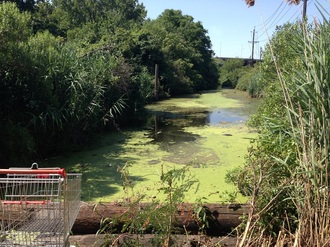
In New Jersey, certain development activities in coastal areas, wetlands, floodplains, and other environmentally sensitive "special areas" are highly regulated by the New Jersey Department of Environmental Protection. The State of New Jersey has adopted numerous regulations including the Freshwater Wetlands Protection Act Rules, Flood Hazard Area Control Act Rules, Coastal Zone Management Rules, Coastal Permit Program Rules, Highlands Water Protection and Planning Rule, and Stormwater Management Rules in order to mandate regulatory obligations necessary for protecting these environmentally sensitive "special areas" and adjacent lands. From installing pilings or bulkheads to building homes or retail centers, the Division of Land Use Regulation has developed a process for issuing permits to maintain balance between environmental health and development. If you are planning to purchase or develop a property LCG's trained personnel can help you determine if your site is within a "special area" subject to the Division of Land Use Regulation Statutes and Rules and streamline the regulatory compliance process.
Wetlands Delineations
LCG conducts preliminary investigations to determine the presence and extent of wetlands, transition areas, and buffer restrictions on a property. These analyses are often used by prospective purchasers to determine the suitability of the land for the client's needs. Such investigations are also undertaken by existing landowners to prepare the property for sale or to analyze the potential and best use of the property. LCG employs the Federally established "Three Parameter Approach" to delineate wetlands in a precise and timely manner to satisfy the client and various governmental agencies involved.
CAFRA Services/Waterfront Development Permitting
In New Jersey, the Costal Area Facility Review Act (N.J.S.A. 13:19), or CAFRA, regulates nearly all residential, commercial, and industrial development occurring within the predetermined CAFRA area. CAFRA applies to nearly all coastal waters and adjacent lands in the southern portion of the State from Middlesex to Salem County. The Waterfront Development Law (N.J.S.A. 12:5-3), enacted in 1914, requires all development occurring in tidal waterways and adjacent land to obtain a Waterfront Development Permit prior to project commencement. In addition, the Waterfront Development Law regulates areas adjacent to water, that are not included in the CAFRA area.
LCG has successfully filed numerous CAFRA and Waterfront Development Permits for a range of projects including residential and commercial construction, expansion, and redevelopment.
LCG has successfully filed numerous CAFRA and Waterfront Development Permits for a range of projects including residential and commercial construction, expansion, and redevelopment.

